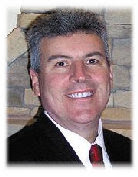A health care agent is a person you appoint to make medical decisions on your behalf if you are incapacitated or unable to make any decisions.
A Living Will (Advanced Directive) expresses your wishes about your health care including, but not limited to, resuscitation, life sustaining treatments (respirator, feeding tube, etc.) and withholding / withdrawing of life sustaining treatments. The Living Will is only effective when you are terminally ill or unconscious and unable to communicate your wishes.
When it comes to making decisions regarding end of life issues, do you know your wishes or have you communicated those wishes to your health care agent?
Do you want to be resuscitated should your heart stop? Do you want to be hooked up to a life support system, feeding tube or respirator? What are your feelings about certain medical treatments?
There are no right or wrong or “preferable” answers to these questions. However, you should be able to communicate these answers, based on your own beliefs, wishes and desires, to your health care agent.
1. You’re seriously ill, and doctors are recommending chemotherapy; would you be willing to endure very severe side effects, such as severe pain, nausea, vomiting or weakness that could last for months, if the chance that you would regain your current health was very low?
2. What do you need for comfort and support as you journey near death?
3. If you had Alzheimer’s disease, and it progressed to the point where you could no longer recognize or converse with your loved ones; when spoon-feeding was no longer possible, would you want to be fed by a tube, into your stomach?
4. If you were terminally ill with a condition that caused much pain, would you want to be sedated, even to the point of unconsciousness, if it were necessary to control your pain?
5. Imagine that you were physically frail and needed help with most routine daily activities such as dressing, bathing, eating and going to the toilet. You were living in a nursing home although still mentally capable most of the time and became sick with pneumonia for the third time this winter causing hospitalization and pain, would you want aggressive antibiotic treatment again or just comfort care until death?
6. Would you want the following medical treatments?
a. Kidney Dialysis (if kidneys not working)
b. CPR (used if heart stops working)
c. Respirator (unable to breathe)
d. Artificial nutrition (unable to eat food)
e. Artificial hydration (unable to drink fluids)
7. Imagine that you are in a permanent coma and dependent on a feeding tube. Would your medical decisions be guided by any particular religious beliefs or spiritual values?
8. Are some conditions worse than death? If you are housebound, in severe discomfort or pain most of the time, would you want medical treatments to keep you alive?
9. Discuss your current health status and, if any medical problems, how do they affect your ability to function?
10. Do you think that your own doctor should make the final decision about any medical treatments you may require?
11. Would you want to have a hospice team or other palliative care (i.e., comfort care) available to you?
12. Do you have any fears regarding health care and/or death?
13. Do you want to donate parts of your body for transplantation or medical research?
14. What are your thoughts about a memorial or religious service? Where would you like your remains placed? Do you want to be buried or cremated?
15. What else do you feel is important for your agent to know?






No comments:
Post a Comment